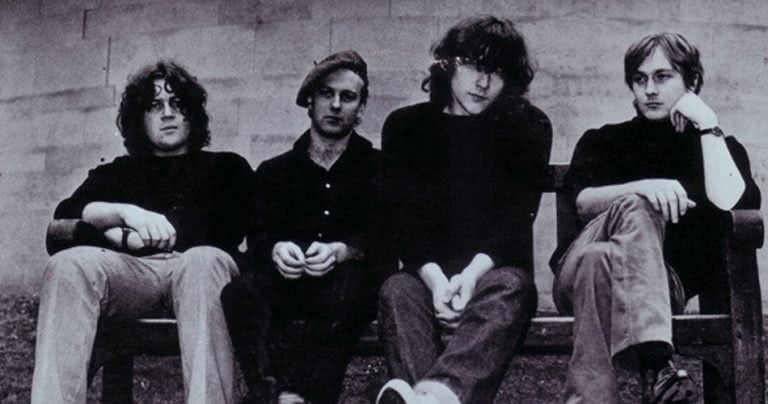Sir Bob Geldof famously stated that rock music in the ’70s was altered by three bands: Sex Pistols, The Ramones, and The Saints. While the first two names have become synonymous with the word ‘punk’, The Saints remain the black sheep of the lineup – the under-recognised misfits from Brisbane who helped shape punk as we know it.
The Saints formed in Brisbane in the mid-’70s. Under a heavily conservative State Government, four high school friends took to their living room to bash out song after song. Inviting their friends into the house for makeshift gigs, the band was building a following around the city, much in the same way Radio Birdman were rising up in Sydney.
In September 1976, The Saints booked a few hours in a recording studio, and left with their first single. 500 copies of the ‘(I’m) Standed/No Time’ were made on the band’s own label, Fatal Records.
It wasn’t until two months later that the Sex Pistols would make history with their first single ‘Anarchy In The U.K.’, and six months until The Clash released ‘White Riot’. The self-titled debut from The Ramones had only been on the shelves for a few short months. The Saints’ single ‘(I’m) Stranded’ was at the forefront of the ubiquitous explosion of punk music.
The Saints were not only Australia’s first punk band, they were one of the first punk bands. Period.
In 2007, the song was added to the National Film and Sound Archive’s Sounds of Australia Registry – a testament to the timelessness of the track. From the manic pace to the buzzsaw guitar, it borrowed from its predecessors, but had a grit that groups like MC5 and New York Dolls just didn’t have. The energy of the band was counterpointed by frontman Chris Bailey’s delivery; vicious and apathetic at the same time.
The video clip fittingly starts with guitarist Ed Kuepper kicking a door in, and his guitar follows suit a few seconds later. The footage was filmed in an abandoned hosue in Paddington – the same house that adorns the cover of their debut album.
‘(I’m) Stranded’ was sent to the local and international press (500 copies were made; 400 were sent away), and the UK was where it was first picked up. Sounds Magazine proudly declared it the “Single of this and every week”, which led to the powers at EMI telling their Australian division to sign the band immediately (following a trend across the world where labels scrambled to sign any punk band that formed).
The rest of 1976 went by in a blur. The Saints were signed to EMI in November, moved to Sydney, supported AC/DC, and then recorded their debut album, also titled (I’m) Stranded. They spent a whopping two days in the studio recording the ten-track album.
The album was released (alongside a reissue of their first single), on the cusp of punk breaking through pop culture. The Saints went on to tour Australia, with varying degrees of success. Their live show was as raucus and unpredictable as their album. The story goes that Kuepper was using a public address system as his guitar amp, destroying the ear drums of all that stood in its path. The band members eventually made their way to England, where they appeared on Top Of The Pops to perform their new single ‘This Perfect Day’. The Saints also played their first ever UK show on a bill with Talking Heads and The Ramones.
The Saints were temporarily the darlings of the UK punk scene, but this was not long-lived. Frontmen like Johnny Rotten and Joe Strummer had a visual and physical style that become synonymous with punk, a style which The Saints frequently rejected; Bailey often holding a cigarette and singing behind a mop of tussled hair onstage.
Their subsequent releases saw the band explore their sound, including a cover of Tina Turner’s ‘River Deep Mountain High’ on one of their singles, and adding Stax-esque horn parts on songs like ‘Know Your Product’. Their next album Eternally Yours was just as passionate and defiant as their last release, but it was a step away from the scene that had praised them only a year beforehand.
By the beginning of 1978, The Saints (or at least the first incarnation of The Saints) was no more. The band had been dropped from their label after the release of their third album Prehistoric Sounds; an album that further built the gap between The Saints and their original sound, with a series of songs more influenced by jazz, soul and the blues than any punk record. The songwriting partnership of Kuepper and Bailey had disintegrated, with both looking to explore different sounds.
Music history is filled with bands that burn out, not fade away. The Saints released their groundbreaking single, as well as three full-length albums, in the space of two years. In a manner similar to the Sex Pistols (but much less disastrous), they came in and made a statement, and then were gone before you knew it. But their legacy lives on in the sea of Australian punk bands that followed, from The Victims and The Meanies, to Clowns and Grenadiers. Australians know in their heart that The Saints were one of the only bands that mattered.

































